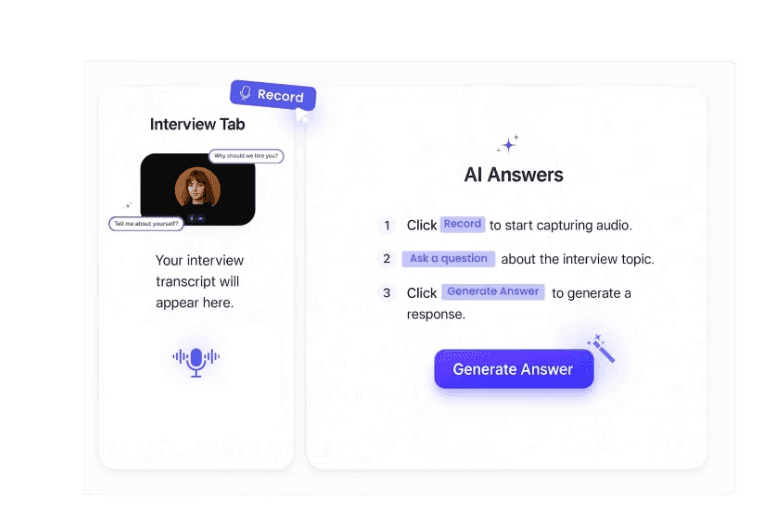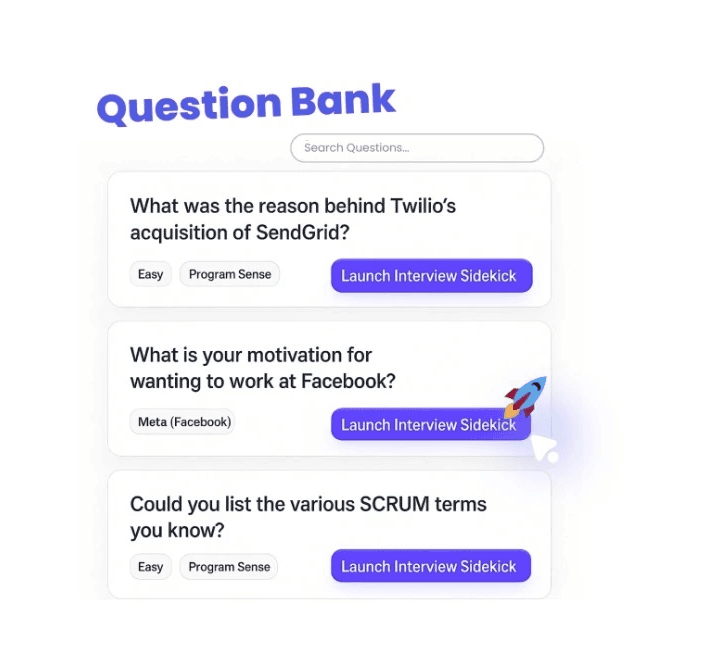The Ultimate Guide to SSIS Interview Questions and How to Answer Them
Key Takeaway: Getting ready for an SSIS interview? Whether you're applying in the U.S., India, Canada, or for a remote data engineering role, SSIS interviews demand more than just technical knowledge — they test how well you can apply it in real-world ETL scenarios. From package configuration and error handling to data flow tuning and control flow logic, this guide covers it all. Plus, with Interview Sidekick’s guided STAR-format prep, you’ll learn how to structure your answers with clarity, showcase measurable impact, and stand out as a confident, solutions-focused candidate.
Why SSIS Interview Questions Are More Than Just Technical
If you're preparing for a role involving data integration or ETL processes, expect to face questions about SQL Server Integration Services (SSIS). SSIS is a widely used tool for data warehousing and transformation, and hiring teams want candidates who can do more than just follow scripts—they want strategic thinkers who can troubleshoot, optimize, and build scalable solutions.
In this blog, we’ll cover the most commonly asked SSIS interview questions, what they really test, and how to answer them with clarity and confidence.
Common SSIS Interview Questions (With Sample Answers)
1. What is SSIS?
"SSIS stands for SQL Server Integration Services. It’s a component of Microsoft SQL Server used to perform data migration, transformation, and ETL (Extract, Transform, Load) operations."
2. Explain the architecture of SSIS.
"The SSIS architecture consists of the data flow engine, control flow, event handlers, package management, and logging. The control flow manages the sequence of operations, while the data flow handles data extraction and transformation."
3. What are containers in SSIS?
"Containers provide a way to organize tasks logically. Common container types include Sequence, For Loop, Foreach Loop, and Task Host. They help in managing complex workflows."
4. What are the different types of transformations in SSIS?
"Some key transformations include Lookup, Merge Join, Derived Column, Conditional Split, and Aggregate. Each serves a different function during data transformation."
5. How do you handle errors in SSIS?
"Error handling can be done using event handlers, logging mechanisms, and configuring error outputs for components to redirect rows with issues."
6. What is the difference between control flow and data flow?
"Control flow is the top-level container that defines the workflow of a package. It consists of tasks and containers, whereas data flow deals specifically with the movement and transformation of data from source to destination."
7. What are precedence constraints in SSIS?
"Precedence constraints determine the order in which tasks and containers run. They can be based on success, failure, completion, or custom expressions, helping manage flow logic within packages."
8. How do you implement logging in SSIS?
"SSIS provides logging mechanisms that can be configured to capture execution details. You can log events like OnError, OnWarning, or OnInformation to files, tables, or Windows Event Log, aiding in troubleshooting and auditing."
9. How do you manage configuration and parameterization?
"Configuration in SSIS can be managed using environment variables, XML config files, or project parameters (in SSIS 2012+). This allows packages to be reusable and environment-agnostic."
Scenario-Based SSIS Interview Questions
Describe a time you optimized an SSIS package for performance.
How do you manage large datasets in SSIS?
What’s your approach to deploying and maintaining SSIS packages in production?
Have you ever had to troubleshoot a failing SSIS package in production? What steps did you take?
Describe a situation where you had to merge data from multiple heterogeneous sources (e.g., SQL Server, Oracle, Excel).
Advanced SSIS Concepts That May Be Asked in an SSIS Interview
Incremental Load Techniques: Using lookup and conditional split to load only new/updated data.
SSIS and CDC (Change Data Capture): How SSIS integrates with SQL Server CDC to track and process changes.
Package Deployment Models: Project vs. package deployment models in SSIS 2012+, and when to use each.
Custom Script Tasks: Scenarios where built-in tasks are insufficient, and a script task using C# or VB.NET is necessary.
Pro Tips for SSIS Interview Success

Be ready to sketch SSIS workflows or data flow diagrams.
Emphasize reusability and modularity in your answers.
Discuss performance tuning techniques, like buffer management and asynchronous transformations.
Know the impact of blocking vs. non-blocking transformations.
Mention testing strategies, like using data viewers and dummy outputs to validate flow.
Demonstrate familiarity with DevOps for SSIS (automated deployment via SSISDB or Azure Data Factory integration).
Get Ready and Practice
Mock Interviews: Get some practice with a friend or mentor to polish your answers and boost your confidence. You can also try out tools like Interview Sidekick to have mock interviews and get feedback.
Research the Role: The more you understand about the job and company the better you can shape your responses. Look into what the company values, their recent projects, and what’s happening in the industry to make your answers fit what they want.
Final Thoughts
SSIS interviews test more than your technical knowledge—they reveal how well you handle real-world data challenges. Showing that you understand both the tool and the business context will set you apart. Be prepared to share examples, ask clarifying questions, and think critically.









